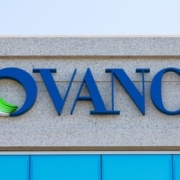The American Association for Cancer Research (AACR) Annual Meeting is running from April 7-13 in New Orleans, with hundreds of presentations on cutting-edge cancer research. The presentations run the gamut from preclinical studies to late-stage clinical trials. BioSpace looks at some of the preclinical and early-stage studies presented.
AstraZeneca will showcase the company’s early oncology portfolio that it believes has the potential to transform the oncology treatment landscape at the upcoming American Association for Cancer Research (AACR) conference.
AACR Calls for More Funding for Basic Research and Telehealth Equity
American Association for Cancer Research (AACR), Centers for Medicare and Medicaid Services (CMS), Congress, Coronavirus Disease (COVID-19) Pandemic, FDA, Hematological Cancers, Immunocompromised, Medicaid, Metastatic cancers, National Cancer Institute, NIH, Oncology, R&D, TelehealthThe COVID-19 pandemic that became evident in the United States in early 2020 had a profound and disruptive effect upon cancer research and treatment, but the lessons learned can be used to improve healthcare delivery in multiple indications, according to the AACR Report on the Impact of COVID-19 on Cancer Research and Patient Care that was released February 9th.
Iovance Biotherapeutics faces another delay in the company’s biologics license application (BLA) submission for lifileucel, as the U.S. Food and Drug Administration once again requested additional data on the tumor-infiltrating lymphocyte (TIL) therapy candidate’s potency assays.
Merck’s vaunted checkpoint inhibitor Keytruda picked up another regulatory approval. The U.S. Food and Drug Administration approved an additional recommended dosage of 400 mg every six weeks for the anti-PD-1 therapy across all adult indications, including as a monotherapy and in combination treatments.
Cambridge, Massachusetts-based Thrive Earlier Detection released data from the DETECT-A study evaluating the company’s blood test to screen for multiple types of cancers. The study was run by Johns Hopkins University and Geisinger Health, testing more than 10,000 women with no previous history of cancer.






